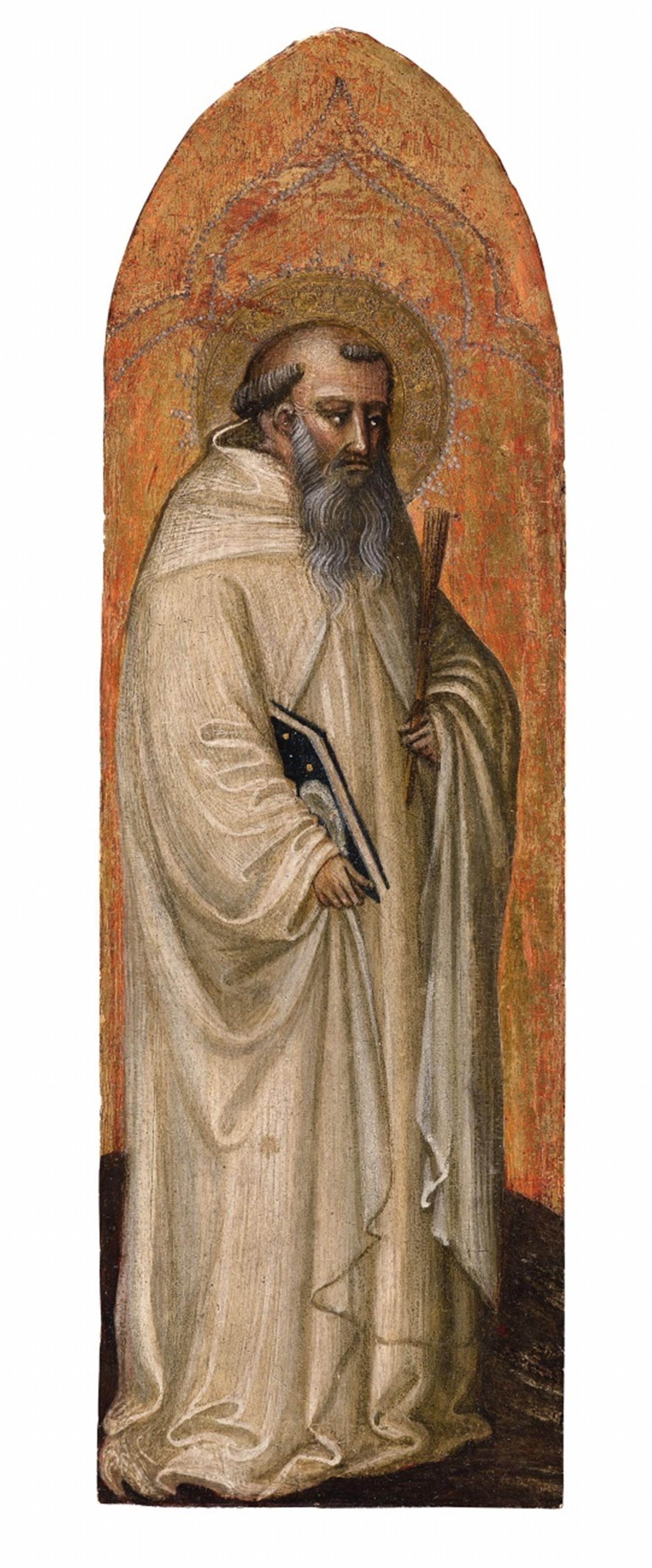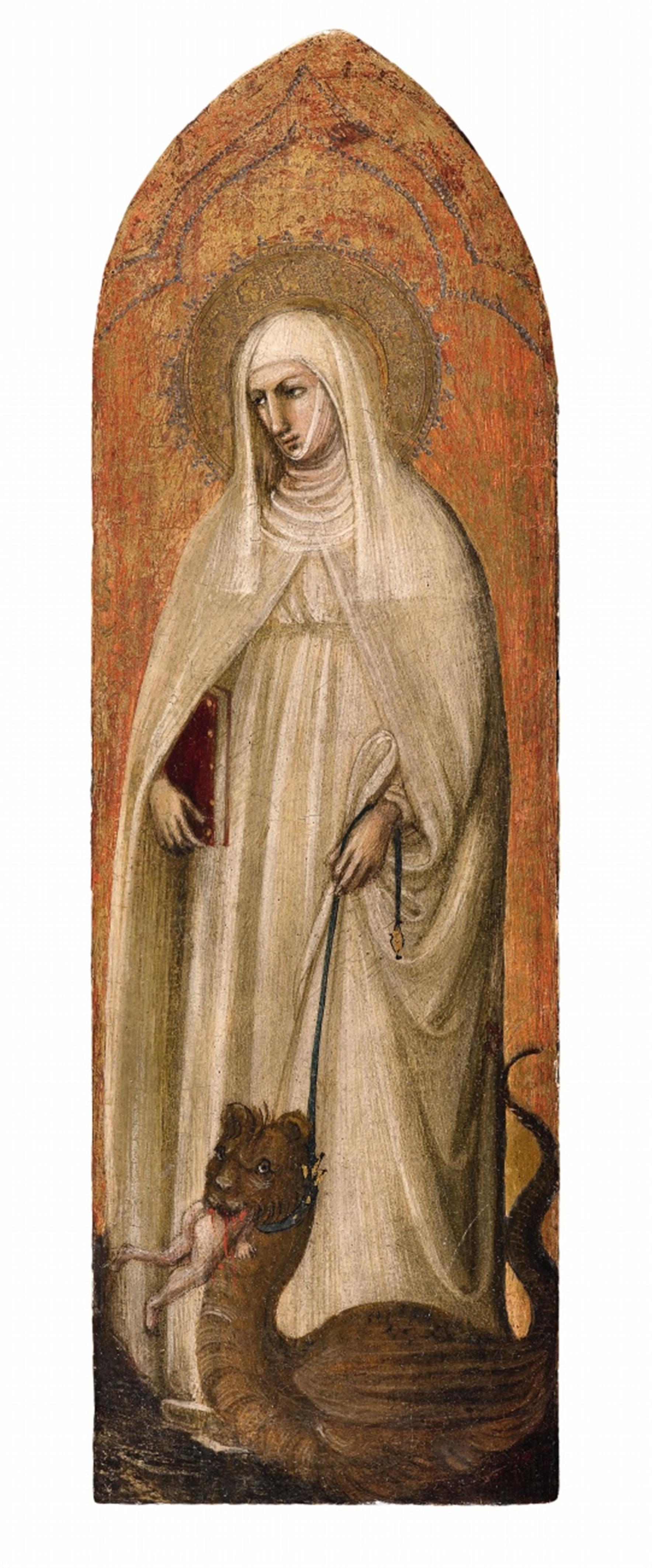Bicci di Lorenzo
Saint Benedict Saint Margaret
Tempera on panel. Each 33 x 10 cm.
The saints Benedict and Margaret of Antiochia are here depicted full-length and dressed in the pale habit of the Benedictine order. The dragon shown devouring a small nude figure, which Saint Margaret is holding on a leash like a dog refers to her legend. In this, a city prefect saw the shepherdess Margaret watching her flock and desired her, but when she steadfastly refused his advances he had her imprisoned. Whilst in jail, the devil appeared to her several times in the form of a huge, ferocious dragon, but she defeated him by making the sign of the cross and the saint remained unharmed.
The style of both panels places them within the oeuvre of the Florentine painter Bicci di Lorenzo. He belonged to the second generation of a famous dynasty of painters founded by his father Lorenzo di Bicci (ca. 1350-1427) and continued far into the 15th century by Neri di Bicci (1418-1492) in the third generation. The present panels are comparable to the wings of a small altarpiece by Lorenzo di Bicci in the Berliner Gemäldegalerie (Fondazione Federico Zeri no. 11806). This work also shows the artist's typical abstraction and simplification of outlines in the saint's faces.
Bicci di Lorenzo's work displays the unmistakable influence of his father, but his early works also show characteristics of Spinello Aretino, one of the main proponents of Florentine “Neo Giottism”. Since the last decade of the 14th century, Aretino had contributed to the “Renaissance” of Giotto's forms occurring in the city, and the somewhat crude abstraction typical of this style is also visible in di Lorenzo's works of around 1415-20. The Berlin panels are characteristic of this, as is a small, round predella panel from a private collection which was recently sold by Sotheby's in New York (29.1.2015, lot 113). After around 1420, Bicci's style begins to display influences of Gentile da Fabriano, the forms becoming freer, more slender and of a finer character.
It can be assumed that the present panels were created in circa 1420 for a winged altarpiece which would have aided the private devotion of a Benedictine monk or nun. The fact that the panels form a continuous earthy plane when placed next to each other indicates that they probably originally formed the reverse of the outer wings of an altarpiece which would have been seen in the closed position.
Certificate
Prof. Dr. Gaudenz Freuler, Zürich, März 2015.
Provenance
Prince Joseph Clemens Prinz of Bavaria. - Private collection, Bavaria.




